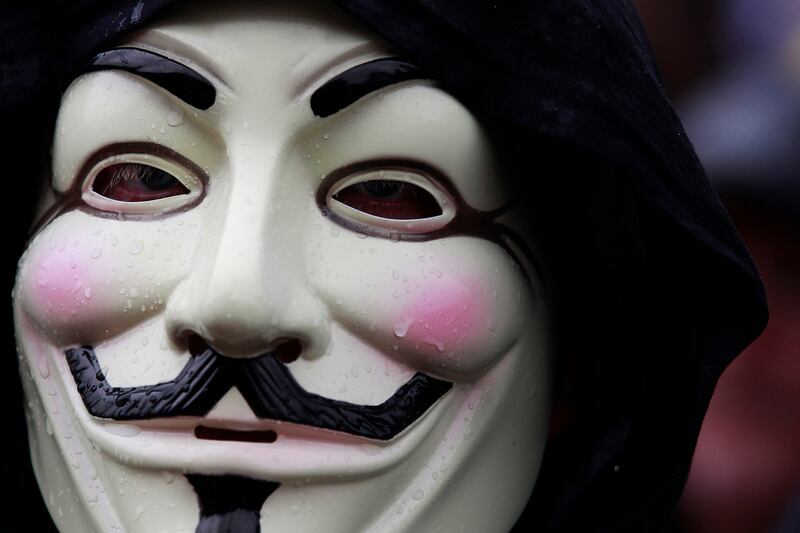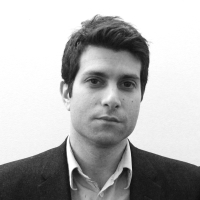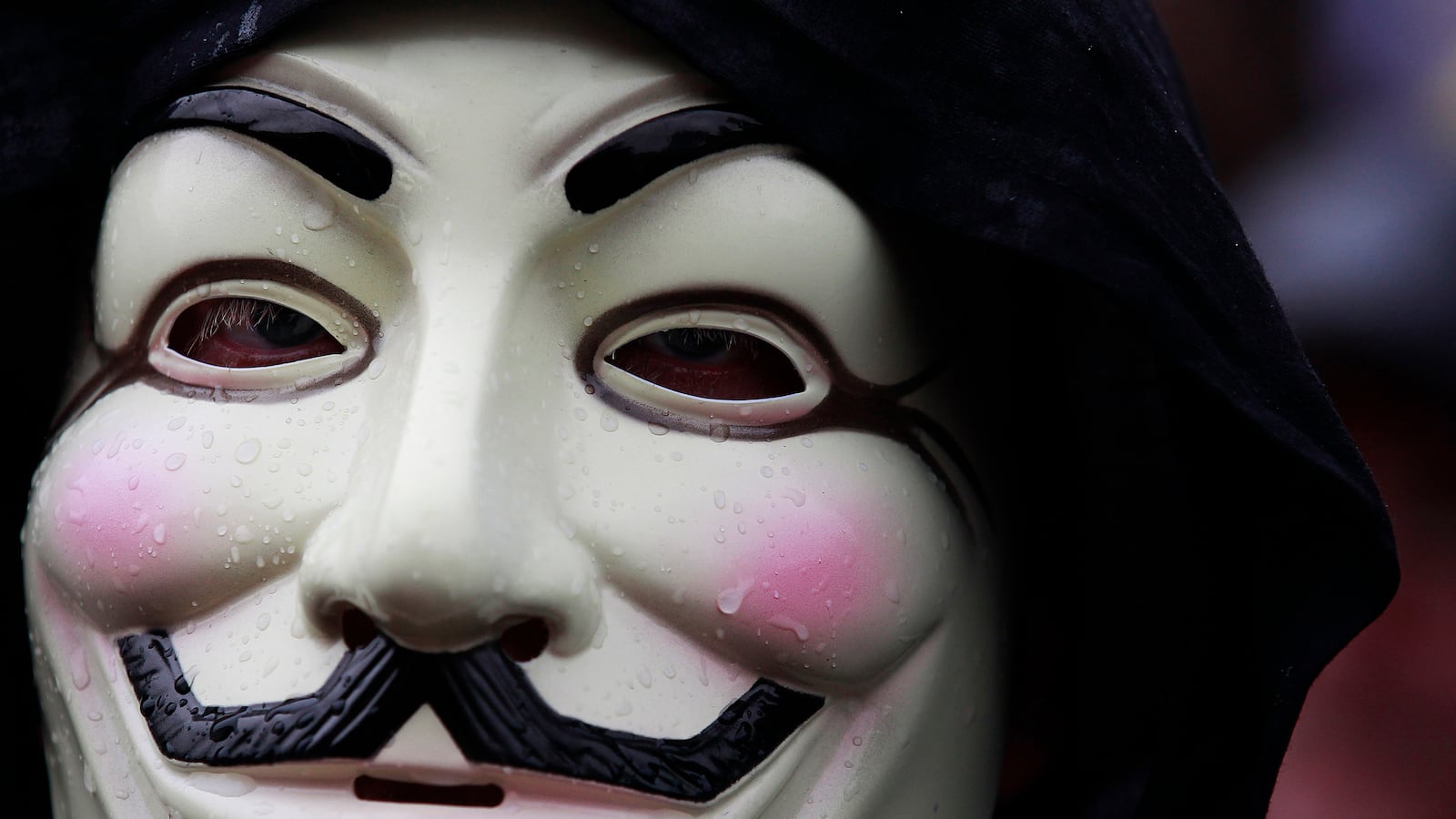After helping, and botching the Steubenville rape case—drawing attention and outing villains, though not always the right ones—Anonymous is at it again, slaying demons in Maryville.

How did Anonymous, which was once devoted to absurdist goofs like the rickroll and which defined itself in opposition to the presumed hypocrisy and tediousness of prevailing social strictures, become a self-appointed victim’s advocacy group?
The collective known as Anonymous was born in the witty, inventive, bilious and gleefully misogynistic message boards of the website 4chan. It grew out of one sub-scene in particular, the anything goes /b/ board, a place where rape didn’t denote a crime but a commonplace suffix; a shorthand, alongside “n***r” and “f*g” for the chan culture’s hostility to the idea that anything could be offensive or go too far. Celebrated rituals on the site involved bullying and stalking teenage girls and tricking minors into taking naked photos of themselves, which would then be posted and passed around online.
But spurred in part by an early fight against Scientology and in part by the reporting on it and a feedback loop with the media, Anonymous has evolved in recent years into a self-styled activist group aligned with WikiLeaks, the Arab Spring and most recently, rape victims.
In its early form, Anonymous’ activism was just another form of irreverence. The fight it waged against Scientology in 2008 was serious, but only because it became personal when the organization began censoring content on the Internet and threatening to sue its critics. In response, the current version of Anonymous formed and began a campaign that included cyber attacks, publishing internal documents, and, in one case, a naked man smeared in Vaseline and pubic hair rubbing himself on various surfaces in a Scientology facility.
Explaining Anonymous’ transformation from whistling arsonists to online vigilantes is difficult and the group is hard to pin down by design. Its members lie to reporters and others trying to understand their motivations, and endlessly dissemble and mythologize in their own broadcasts—and while their actions transmit in the aggregate, they only exist by the deeds of unknown individuals who may be key players today and gone tomorrow.
The recognition of how much power they actually possessed may have been a catalyst for Anonymous’ evolution. The early 4chan culture, with its viciousness, inscrutable language and endless inside goofs like lolcats, was the expression not of revolutionary sensibilities but of a culture that considered itself more clever than the herd and yet still marginal. But as 4chan became aware of itself as the Internet's laboratory, incubating countless memes that were spread or developed on other sites, eventually reaching billions, it became conscious of just how much clout it actually had—the ability to help shape and define Internet culture and set the agenda for what issues were considered important in the broader world.
Since that moment of awareness, Anonymous has been moving, in its public form, continuously further from its bad old days. Today, the group is fast becoming a fixture of the mainstream anti-establishment culture, taking up earnest causes and speaking in the same sort of strident tones its older self would have torn to shreds. That may represent growth but it has come without any sort of reckoning.
In writing over its past, and behaving as if only the newest message on the board represents the speaker, Anonymous has been able to retain its old tactics but, by applying them to worthy causes, assumed a newfound legitimacy. The same brash arrogance and impetuousness applied to criminal cases rather than flame wars has had real consequences. In Steubenville, the first case of a small-town rape cover-up that Anonymous became active in, the group's efforts to spread news of the crimes and pressure the local authorities to take action were accompanied by the release of nude photos of an innocent woman not involved in the crime. Anonymous’ approach in the case, unencumbered by legal restraints, was to shame anyone they believed was an accomplice to the rape, whether or not that person had committed a crime himself.
Deric Lostutter, the figurehead for Anonymous’ Steubenville campaign—whose house was raided by the FBI though he was never charged—described the group to me as “the idea of an idea.” That idea has clearly evolved and in its current version is partly responsible for bringing the national attention that recently got an alleged teenage rape victim’s case reopened in Maryville, Missouri—a point that the teen herself makes in an essay she published Friday, which thanks the online group.
Now that the Missouri justice system is involved and the case is under a spotlight, Lostutter thinks that Anonymous should “step back away and see what course the investigation takes.” But asked about Anonymous’ broader potential to affect change, Losttutter said, “I’d be very surprised if you could ever put a limit on what Anonymous is capable of." To its believers, Anonymous is a current of human purpose waiting for the right people to conduct the charge into light or fire.
Good deeds don’t erase past transgressions but they might suggest new possibilities. The problem with Anonymous is that it’s nothing but possibilities, unwilling to hold itself in any enforceable way even to those few ideas it claims to hold sacred.
When asked whether the members of Anonymous who have tried to help young girls in Steubenville and Maryville could be the same people engaged in attacking women elsewhere on the web, Lostutter denied that it applied to him personally but acknowledged that it was true for some. Speaking to his own complicated motivations he said, “I’m the first person that will walk up to you in a bar and try to take your girlfriend but I’m also the first person that will try to defend your girlfriend if someone is harassing her in a bar.”
Though it makes for a cleaner narrative, there doesn’t need to have been a sharp break where the old anarchic 4chan adherents split off while the more politically minded do-gooders formed a faction that became the current Anonymous. It’s possible that the same people who rickroll also felt inspired by WikiLeaks and events in Tunisia and that a single person might make sport of abusing girls online one day and want to act as their avengers the next. Without any way to tie individual members to their actions, identity can be as fluid as it is in Grand Theft Auto, a second life—where you beat a hooker one minute and play the hero the next.
In an Anonymous chatroom, without even an avatar to create a fixed identity, consistency goes first and then, in the vertigo of shuffling through different characters and poses, accountability fades. Even the worst online bullies of social media, those who are now blaming the Maryville rape victim, have their names attached to their posts and can be held accountable for their actions. Not so for the members of Anonymous.
Anonymous did not invent the spread of slander posing as news. After the Boston bombings both the online site Reddit and the New York Post published identifying information about innocent individuals whom they wrongly implicated in the attack. But in both cases there was an airing out of guilt and a series of repercussions, including a noticeable reaction among the users of Reddit to stifle the irresponsible spread of early news and allegations in developing news stories. Anonymous, for its part, took no such responsibility after Steubenville, had no official entity which could be held liable, and has exhibited much of the same approach in Maryville.
The liberating potential of anonymity can ferment new ideas, as the wealth of cultural tropes to come out of 4chan makes clear, but in behaving as political activists while absolving themselves of moral agency by hiding behind the collective mask, Anonymous mimics the same sort of evasive move that it condemns in state and corporate actors.
Nor does Anonymous seem interested in addressing its own character by restricting membership or enunciating a set of consistent beliefs. When I asked Lostutter directly if he thought Anonymous should consider policing itself, his answer, given on his own behalf and not for the group, suggested that I’d missed the point. “That’s what makes Anonymous unstoppable—that there can't be any constraints.”
Yet, unwilling to regulate itself or accept any restrictions on its members or their behavior, Anonymous wants to be take seriously and empowered as the Internet’s voice of justice. It seems absurd but with every new case they take on, where even innocent people have been caught up in their rush to find and punish villains, their reputation grows—attracting more members and giving them an even larger platform for the next time. It may not be possible for Anonymous to codify its own moral principles and hold itself to them without betraying its founding ethos, but if that’s the case, and in spite of whatever good it has done, it shouldn’t be trusted or allowed to outrun its past.
The greatest problem with Anonymous vigilantism is that they’re even less accountable than Batman, not only masked but formless. Where the law fails and authority abdicates its responsibility, there can be a case for vigilantism as a morally justified legal trespass. But the vigilante, to make that claim, must be his own moral agent willing to stand behind his appeal to justice.
One way of understanding Anonymous’ evolution might be to recognize that in the quest to try everything once they've arrived at the same conclusion as many other inveterate seekers, it gets lonely out there. So it’s best to focus on a few things you find gratifying and stick around long enough to reap the rewards. Somehow they have moved from hate talk to hunting haters, or at least those people they see as such.





